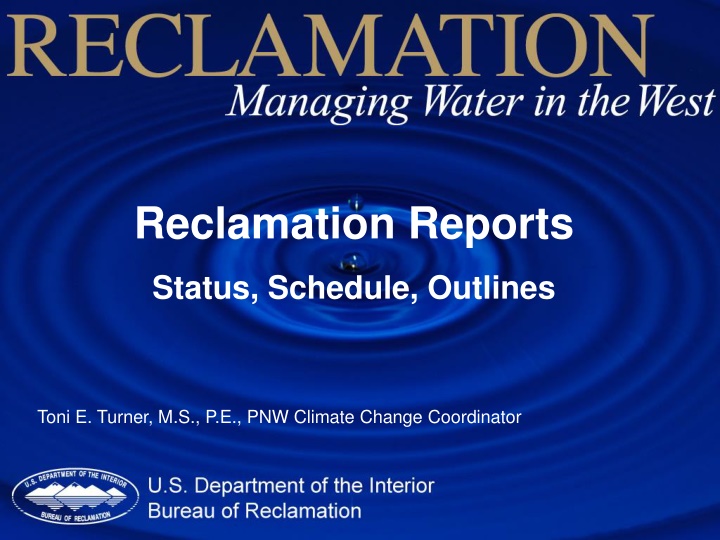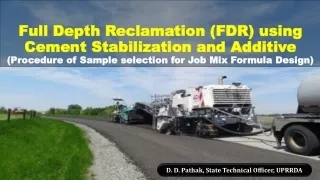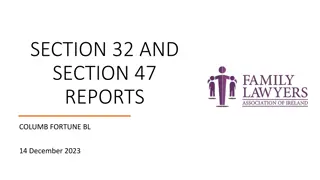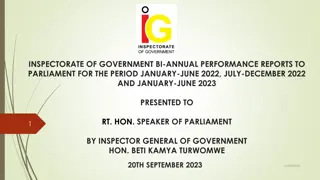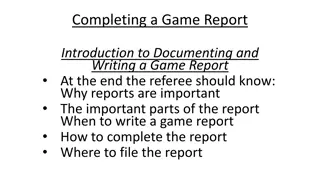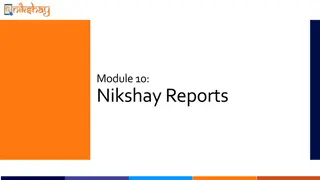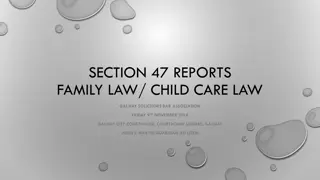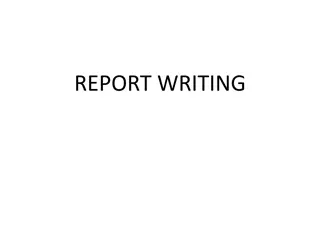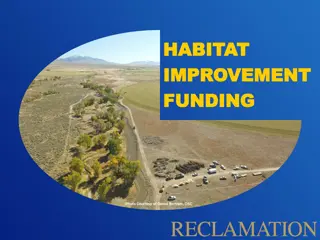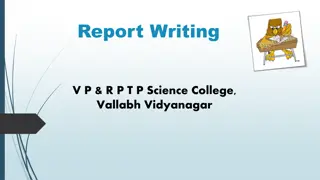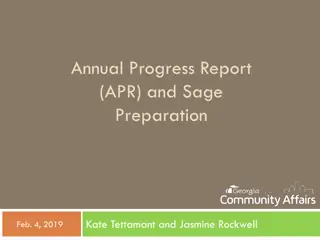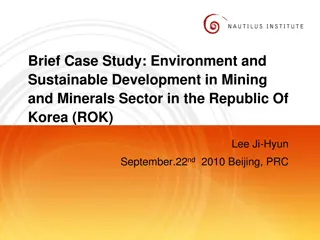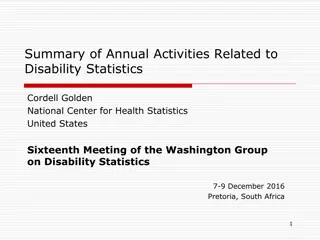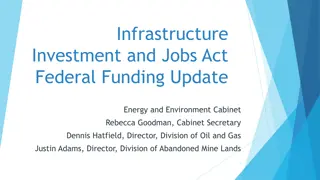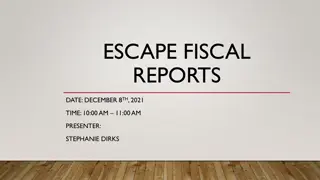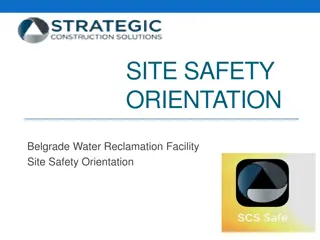Reclamation Reports
In-depth overview of the reclamation reporting process, upcoming reports, technical memorandums, and climate change analysis. Detailed steps involved in drafting, reviewing, and finalizing reports. Includes outlines and examples of technical memorandums on climate change scenarios, results, and conclusions. Main report covers historical conditions, supply-demand analysis, collaboration efforts, and future projections.
Uploaded on Feb 15, 2025 | 0 Views
Download Presentation

Please find below an Image/Link to download the presentation.
The content on the website is provided AS IS for your information and personal use only. It may not be sold, licensed, or shared on other websites without obtaining consent from the author.If you encounter any issues during the download, it is possible that the publisher has removed the file from their server.
You are allowed to download the files provided on this website for personal or commercial use, subject to the condition that they are used lawfully. All files are the property of their respective owners.
The content on the website is provided AS IS for your information and personal use only. It may not be sold, licensed, or shared on other websites without obtaining consent from the author.
E N D
Presentation Transcript
Reclamation Reports Status, Schedule, Outlines Toni E. Turner, M.S., P.E., PNW Climate Change Coordinator
Agenda Upcoming Reports and Technical Memorandums (TM) Reclamation Process General outline of TMs Climate Change TM example Main Basin Study Report Outline Summary of Reports/Schedule
Upcoming Reports, TMs, Process TMs Climate Change Groundwater Hydrology Water Resources Main Report Overall Basin Study information Summary (in more layman s terms) of the TMs
Reclamation Reporting Process Report is drafted by technical staff Peer reviewed in-house (usually a couple of iterations) Approved version is sent to a Technical Writer Make compliant with Reclamation standards Edit, format, and formalize document Number lines, prep comment document Tech Writer version sent to stakeholders for review Comments are documented, some are incorporated, all are responded to (this can be informal too) Document is finalized, placed on the Basin Study website, distributed if appropriate Process can take up to 3 months
TM General Outline Introduction/Background Approach/Methods Results Discussion Conclusions References
Climate Change TM Example 1Introduction 1.1 Purpose and Scope 2 Defining Climate Change Scenarios 2.1 Available Climate Change Projections 2.2 Climate Projection Processing Methodology 2.2.1 Climate Change Dataset Selection 2.2.2 Historical and Future Temporal Ranges Selected for Comparison 2.2.3 Climate Change Uncertainty Characterization 2.2.4 Projection Processing Technique Selection 3 Climate Change Results 3.1 Selected Climate Change Projections 3.2 Hybrid Delta Ensemble Processing Results 4 Conclusions 5 References
Main Report Introduction Purpose/Objectives Collaboration and Outreach Summary of Previous and Current Studies Interrelated Activities (e.g., Storage Study) Historical Conditions Supply (GW, SW, Glacier) Demand (irrigation, potable water, etc) Climate Other (fish, etc) Future Conditions Generally same as above
Main Report (cont) Analyses and Results Climate Change Groundwater Hydrology Water Resources Other Adaptive Management Strategies Structural Non-Stuctural Conclusions/Findings Next Steps References
Summary Hood River Basin Study Report Schedule River and Reservoir Operations Review due by: Draft to Tech Writer by: Draft to Stakeholders by: TM & Main Report Comments Due Back by: Reclamation Finalize by: December/ January (Toni) Climate Change TM Groundwater TM Hydrologic Model TM Water Resource TM 2/7/2014 2/28/2014 3/10/2014 3/21/2014 January (Jen) 2/7/2014 2/28/2014 3/10/2014 3/28/2014 3/21/2014 (Bob/Toni) 4/11/2014 (Bob/Jen) 3/28/2014 4/11/2014 4/21/2014 5/2/2014 4/25/2014 5/2/2014 5/12/2014 5/23/2014 Full Basin Study Report 4/14/2014 (All) 4/28/2014 5/9/2014 5/23/2014 6/1/2014
